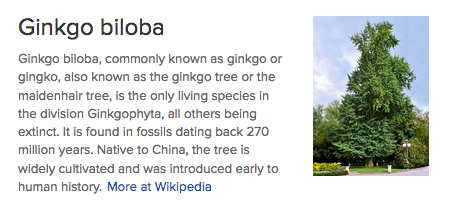Overview
Ginkgo biloba is one of the world’s oldest tree species. People cultivate ginkgo trees not only for their beauty, but because they are thought to have medicinal properties. In traditional medicine, ginkgo seeds and leaves have been used to treat circulatory disorders and respiratory diseases. More recently, ginkgo biloba was tested as a potential treatment for symptoms of Raynaud’s syndrome, a painful condition affecting some people’s fingers and toes during cold weather.
Raynaud’s Association Caution: Historical results for the treatment of Raynaud’s with Ginkgo Biloba shows some promise – but to date, the improvements have been found insignificant in clinical trials. Supplements can interact with other medications and herbal remedies. Their use should be discussed first with your doctor.
Raynaud’s Syndrome
Raynaud’s syndrome is a painful, episodic condition characterized by a decrease in the blood supply to one or more extremities or digits. Blood vessels constrict and limit the flow of blood to the skin, triggering extreme physiological responses when skin is exposed to cold temperatures: fingers, toes, hands or feet first become pale and splotchy, then purplish and cold to the touch. The fingers and toes tingle, feel numb and become swollen and painful. Slowly warming affected areas allow the constricted capillaries to open and the blood to flow naturally.
Ginkgo
Ginkgo biloba increases blood flow and helps reduce the fragility of capillaries, the narrow blood vessels found throughout the body. According to naturopathic physician, Beth Burch, M.D., the best herb to use for Raynaud’s syndrome is ginkgo biloba, because ginkgo thins the blood and opens capillaries to increase blood flow.
Ginkgo and Raynaud’s
Andrew H. Muir, M.D., in “Vascular Medicine” explored whether or not ginkgo had a positive effect on symptoms or occurrence of Raynaud’s compared to the effects of placebo. Results showed that ginkgo reduced the daily frequency of Raynaud’s symptoms and that weekly attacks were less frequent.
Warnings
Talk to your health care provider before taking ginkgo. Ginkgo can interact with certain herbs and medications and can increase your risk of bleeding. Never combine ginkgo or supplements that contain ginkgo with blood thinners, aspirin, ibuprofen, coumadin or arthritis medications.
I enjoyed your article on the Ginkgo Biloba tree. Ginkgo also helps improve memory and cognition. If you'd like to read another article about trees with powerful health properties, I just posted an article on the Moringa tree. Thank you for sharing your knowledge...
Downvoting a post can decrease pending rewards and make it less visible. Common reasons:
Submit
Thank you, glad you enjoyed it Ginko is great, we all need to educate ourselves on these all natural remedies.
x
Downvoting a post can decrease pending rewards and make it less visible. Common reasons:
Submit